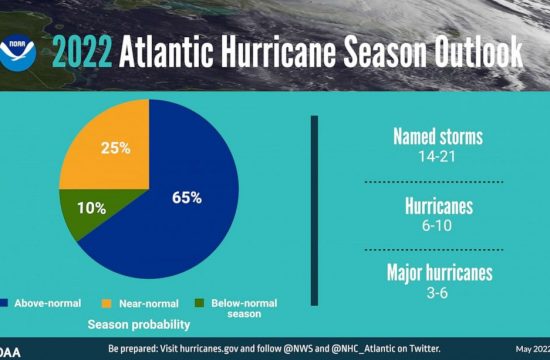The USS Nimitz was ordered back to the Middle East two weeks ago.
With tensions running high between Iran and the United States in recent weeks, the Navy’s top admiral believes the U.S. has the right naval assets in the Middle East to deter Iranian aggression.
Adm. Mike Gilday, the chief of naval operations, told reporters during a trip to the headquarters of the U.S. Navy’s 5th Fleet in Bahrain, that the recent return of the aircraft carrier USS Nimitz to the waters of the Middle East was intended “to maintain stability, at a time when things could potentially become unstable.”
Asked for his assessment of tensions in the region, Gilday said that “right now, things seem to be very stable in the region.”
There has been some speculation that Iran might retaliate against U.S. forces in the region on the anniversary of the U.S. airstrike that killed senior Iranian general Qossem Soleimani.
American B-52 bombers have recently carried out long-range missions to demonstrate the U.S. military’s strategic capabilities and Iran has carried out large scale naval and drone exercises.
“We’re sending a very clear signal to Iran and others that we have the capabilities in place to respond should we be required to,” Gilday said.
Gilday said the Navy’s presence in the region and cooperation with 33 coalition countries has deterred Iranian malign activity and reassured U.S. allies and partners in the region.
“We’re not looking for trouble, we’re not trying to instigate anything,” he said. “Our focus is to maintain stability in the region and right now my assessment is that we have the right forces in place.”
Two weeks ago, the USS Nimitz was abruptly ordered to return to the Middle East just days after the Pentagon announced it was headed back to the U.S. following a nine-month deployment.
The original plan to end the carrier’s deployment was intended to send a message to Iran that the U.S. was de-escalating tensions ahead of the anniversary of Soleimani’s death.
But threats from Iranian leaders aimed at President Donald Trump around the time of the announcement led Trump to reverse the Pentagon’s decision and direct the carrier back to the region.
It is unclear how long the carrier will remain in the region after what was already a lengthy deployment.
The extension also means the Navy will have to delay scheduled maintenance to prepare the USS Nimitz for future deployments.
As for the crew of the Nimitz, “they’re doing just fine,” Gilday said, describing his videoconference with the ship’s senior leaders.
“They understand the mission that they’ve been assigned to do,” Gilday added. “Although they’ve been extended, they understand the importance of it.”
During his two-day visit to Bahrain, Gilday said Navy sailors did not ask him about the situation in the U.S. following last week’s assault on the U.S. Capitol.
His sense is that sailors are “well-informed” about what has been going in the country, but they understand their sworn mission to support and defend the Constitution.
“That’s our job, and I think that we just need to keep our heads down and you would expect the American public would expect that we would be focused on mission, and that there would be nothing but stability in the United States military,” he said.











